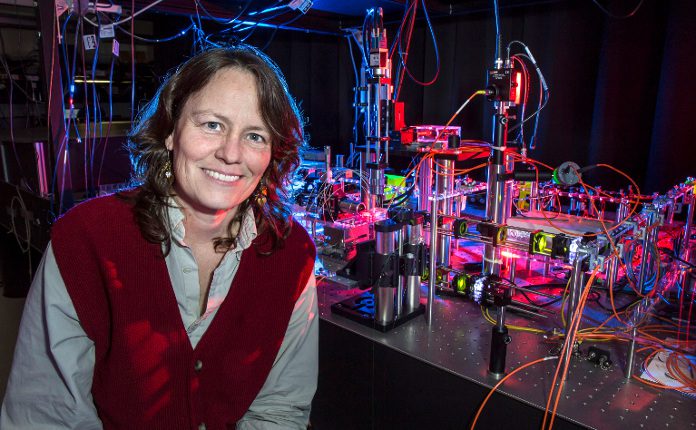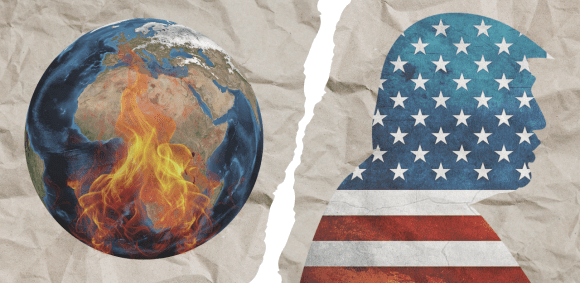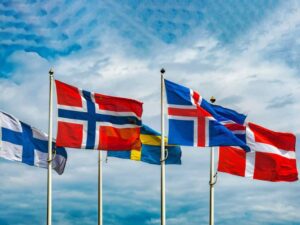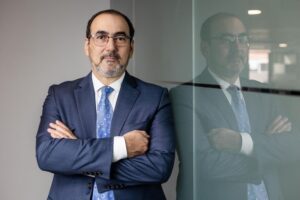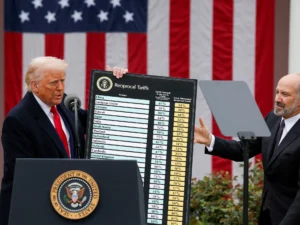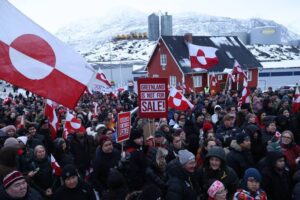What’s happening right now in Los Angeles is almost too painful to write about. I’ve spent much of the day writing and calling back and forth with friends and colleagues. All report: horror. And since it’s playing out against the most familiar backdrop on earth, the scene of more movies and tv shows than any place on our planet, I think it will be as iconic as Pompeii in our collective imagination. If, you know, people in Pompeii had had smartphones.
So let me pull back a minute and tell a broader story. Though I’ve spent most of my life in the mountains of the East, my early boyhood was in California—my earliest recollections are of our house in Altadena, the neighborhood currently being consumed by the Eaton fire. And the sharpest memories of those are of climbing the fire road to the observatory at Mt. Wilson, which you could see from our backyard. I guess those must have been the first hikes in a lifetime of hikes, the first time to see the world spread out below
I didn’t know it at the time—I was five—but the telescopes at the observatory at the top of the road were the place where humankind first really saw the universe spread out above. Edwin Hubble, using the 100-inch Hooker telescope, then the largest in the world, made a series of pivotal discoveries in the 1920s. First he showed that the Andromeda nebula was outside our galaxy, taking the universe past the Milky Way. And then, a few years later with Milton Humason, he demonstrated that those distant galaxies were receding from ours—that the universe was expanding. This was the crucial groundwork for the Big Bang theory.
The last time I was up there, you could press a button on a display and the reassuring voice of Hugh Downs would explain that “Hubble’s discoveries were the last great step in the Copernican revolution of thought concerning man’s place in the cosmos. Hubble showed that our galaxy is not the center of the universe. There is no center.”
These discoveries were of a piece with the other great revelations of the 20th century—things like the invention of the solar cell at Bell Labs in 1954, or Jim Hansen’s pathbreaking climate science at NASA’s labs in the 1980s. They were the product of the human instinct for observation, nurtured in America’s unprecedented complex of university, government, and commercial labs. Scripps Oceanographic, MIT, Caltech, JPL, on and on. These were the kind of institutions that took us to the moon, and that indeed just last month shot a spacecraft closer to the sun than ever before.
And it’s this kind of science that lets us understand what’s happening in LA today; the descendants of Hubble and Hansen have continued the kind of painstaking research that make clear the result when a climate-induced drought (it’s only rained 0.16 inches in LA since May) and climate-induced heatwaves (the LA basin had some of its hottest stretches ever this past summer) and perhaps the climate-induced increase in the intensity of Santa Ana winds combine to created a firestorm unlike any other. It’s both simple and complicated: here’s a remarkable paper from Nature explaining how the melt of Arctic sea ice, by affecting the jetstream, is making West Coast fires worse.
In some ways, all this human intelligence is still being put to good use. Sammy Roth has written powerful recent accounts of Los Angeles’s push to build solar farms on all its margins, en route to becoming one of the world’s most renewably powered cities.
But in other ways that legacy of highly developed human intelligence is starting to disappear. It’s not just the polio vaccine (RFK Jr. told reporters yesterday, by the way, that he was “very worried” about his LA mansion). It’s the web of climate science targeted by Project 2025, which envisions an end to federal support even for the web of thermometers that measures our descent into something like hell. That’s because they understand (correctly) that this science is “one of the main drivers of the climate change alarm industry.” As Marc Morano, perhaps the country’s most inedfatigable climate denier, put it on Fox yesterday when asked about climate researchers
You have to cut the funding. You have to cut the program. You have to fire the employees, or at the very least, since it is hard to fire people, reassign them.
And yesterday the incoming president published a particularly memorable rant on his Truth Social platform
Governor Gavin Newscum refused to sign the water restoration declaration put before him that would have allowed millions of gallons of water, from excess rain and snow melt from the North, to flow daily into many parts of California, including the areas that are currently burning in a virtually apocalyptic way. He wanted to protect an essentially worthless fish called a smelt, by giving it less water (it didn’t work!), but didn’t care about the people of California. Now the ultimate price is being paid. I will demand that this incompetent governor allow beautiful, clean, fresh water to FLOW INTO CALIFORNIA! He is the blame for this. On top of it all, no water for fire hydrants, not firefighting planes. A true disaster!
That this is all nonsense should by now be taken for granted. His reference is to some effort half a decade ago to allot yet more water to California’s big corporate farms; there is no river of water that the governor could somehow have diverted to Los Angeles to fight the fires. (And if you look at the videos it’s painfully absurd to imagine that a phalanx of firemen with hoses were going to beat down this maelstrom). Elsewhere on social media MAGA aficonados (and U.S. Senators) have taken turns blaming DEI initiatives, the war in Ukraine, and so on.
The great casualties in California today are people and animals and buildings—homes, synagogues, schools, libraries. The great casualty in the month’s ahead may be the insurance system of the world’s fifth biggest economy, which is going to buckle under the strain of these losses. But the steady loss of intelligence in our nation and our world worries me the most. Even as the stakes grow higher, we’re losing our hard-won ability to understand the world around us.
One of the mysteries of Hubble’s universe is why we haven’t found other intelligent species. One explanation is that most civilizations do themselves in before they can reach out into space.
In other energy and climate news:
+On the list of truly admirable characters in the climate fight, few rank higher than Christiana Figueres, who was instrumental in reaching the Paris climate accords. In a new podcast interview with Mongabay she acknowledges the hole we’re in, and also that the UN process seems to be hitting dead ends. But she takes heart from the rapid deployment of renewable energy, and sums it up thusly:
“I used to think that it was our collective responsibility to guarantee to future generations that they would have a perfect world. And now that I am a recent grandmother, I really look back at that and I go, ‘my God, we cannot guarantee to future generations that they’re going to have a perfect world.’ We cannot. So, what can we do? We can do our darndest and we can wake up every morning and make a choice and say ‘where am I going to put my energy today?’”
+The always interesting Daniel Aldana Cohen and Theo Riofrancos argue in the Times that Joe Biden spent too much time focused on technological progress and the Inflation Reduction Act, and that he would have fared better electorally by “folding climate policies into an agenda that tackles the cost-of-living crisis.”
In the long run, the Inflation Reduction Act’s investments in greener infrastructure and new technologies could help. But these will take years to bear fruit and may not affect the cost of living. This is why we must replace the Prius economy with one focused on affordable green housing, higher wages, cheap clean energy, lower commuting costs and expanded mass transit. States, cities and towns can get the ball rolling.
In somewhat the same vein, John Sengalso argues that we are too narrowly focused on solar and batteries, and that we should reorient ourselves toward the natural world.
The idea of changing our relationship with the earth and living in harmony with nature can sound nebulous, especially if we’ve been brought up in a wealthy, industrialized country. In the westernized world, especially in the domain of policy and politics, we are trained to demand timely, quantitative solutions. We’re going to have to grow to operate outside of that narrow lens on life. We need to evolve as a species, to embrace our role as one of many life forms, and find joy in a lifestyle that is compatible with the basic properties of our beloved planet.
I take both points, and I also think we better build as many solar panels and batteries as fast as we can.
+Good and important news from Europe, where the rapid spread of solar panels and batteries (and wind turbines) dropped emissions from the power sector 13 percent last year. That’s a big number, as Nick Hedley makes clear
Renewables made up 48% of the EU’s power generation mix in 2024, up from 45%, while nuclear contributed 24%, a 1 percentage point increase. Fossil fuels comprised just 28% of the total – the lowest share ever.
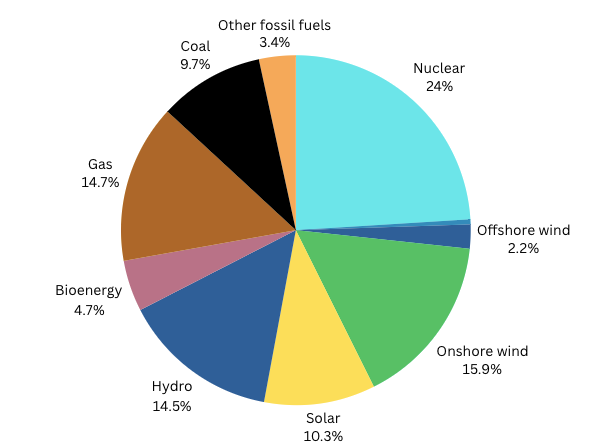
Meanwhile, the average day-ahead wholesale electricity price was €82 per megawatt, a 16% decline from 2023 levels.
+A nice small victory in Alaska. Congress forces the president to periodically offer up the Arctic National Wildlife Refuge to people who want to drill for oil. This happened yesterday, and there were no bidders. The Gw’ichin Steering Committee, which has been at the forefront of preserving this magical place, issued their response.
We know that we are not alone: the majority of Americans support protecting the Coastal Plain of the Arctic Refuge; twenty-nine global banks now have a policy to decline underwriting oil and gas projects in the Refuge; and fourteen international insurers have also made such commitments, and the United Nations has three times sounded alarms about the harm and human rights violations to the Gwich’in from proposed oil and gas development in the sacred Coastal Plain.
A second failed lease sale in the Arctic Refuge also clearly demonstrates that even oil companies recognize what we have known all along: drilling in the Arctic Refuge is not worth the economic risk and liability that results from development on sacred lands without the consent of Indigenous Peoples.
Long ago the Gwich’in followed vadzaih (caribou) to see where they went and to learn their ways. They led us to the Coastal Plain of what is now called Alaska. It was here that we exchanged half of our heart with half of the heart of vadzaih. In this way we became one and would always be connected. Iizhik Gwats’an Gwandaii Goodlit is the critical nursery grounds of the vadzaih, which are essential to the nutritional, cultural, and spiritual needs of the Gwich’in Nation. Our traditional knowledge tells us that if you develop in the nursery grounds of the caribou you destroy the caribou, and therefore, destroy the Gwich’in.
That is deep and important knowledge about the caribou, deep and important like Hubble’s understanding of the expanding universe. Treasure it all.
Article written by Bill McKibben

 Follow SDG News on LinkedIn
Follow SDG News on LinkedIn

